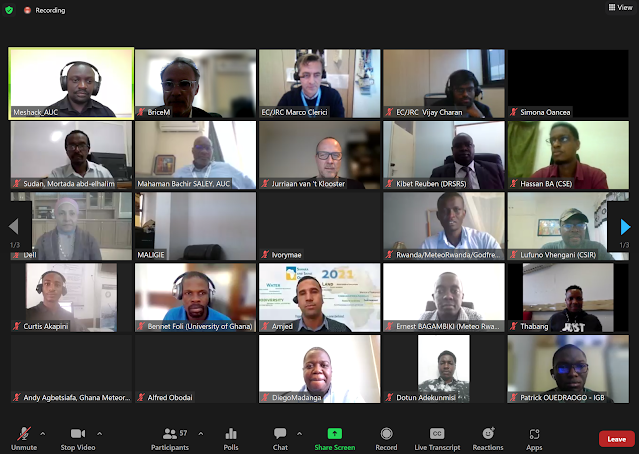GMES and Africa Training: 1st JRC online session on eStation Maintenance
The JRC and GMES & Africa coordination, with the support of EUMETSAT, are organizing a new series of online Training sessions on the Maintenance of the eStation. The english session has started today 5 dec for 3 days
The main goal is to prepare the technical and system administrators in the beneficiary Institutions (including beneficiaries of MESA, AMESD, PUMA, etc. stations) on the installation and maintenance of the systems for their smooth operations.
Although designed for IT and system administrators, the training is meant for as many interested people as possible, without limitation on attendance.
The eStation is a high-performance system for acquiring and processing data from various sources. In particular, it ingests space data from earth observation by various satellites, including sentinel satellites. It offers high-level and continuously updated information for decision-making. Interested parties can access the eStation online, or the software can be downloaded to a PC/laptop.
- The proposed Concept Note and Agenda for the sessions (EN).
- The eStation, The eStation 2.0 is an Earth Observation processing system developed by the JRC since year 2009. The eStation is designed to automatically deal with the acquisition, processing, visualization and analysis of key environmental parameters derived from remotely sensed data. The measurements are, among others, obtained from the SPOT/PROBAV, SEVIRI/MSG, TERRA-AQUA/MODIS and Copernicus Sentinel 2 and 3 Earth Observation systems, https://estation.jrc.ec.europa.eu/
- EUMETSAT, https://www.eumetsat.int/, EUMETSAT is the European operational satellite agency for monitoring weather, climate and the environment from space. An intergovernmental organisation based in Darmstadt, Germany, currently with 30 Member States, EUMETSAT operates the geostationary satellites Meteosat -10, and-11 over Europe and Africa, and Meteosat-9 over the Indian Ocean. It also operates two Metop polar-orbiting satellites as part of the Initial Joint Polar System (IJPS) shared with the US National Oceanic and Atmospheric Administration (NOAA) and is a partner in the cooperative sea level monitoring Jason missions (Jason-3 and Jason-CS/Sentinel-6) involving Europe and the United States.












Comments
Post a Comment